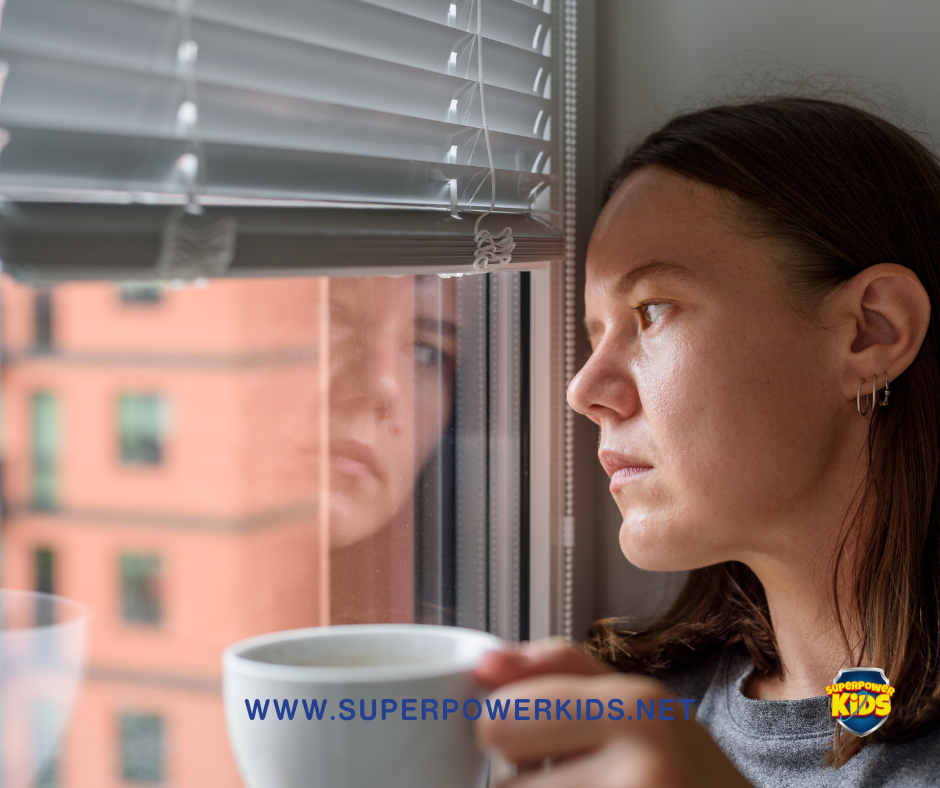Parenting can be challenging, especially when you feel anxious or overwhelmed. Of course, feeling like this is normal, but managing your anxiety to be present with your child and provide them with a happy and healthy environment is essential.
Parental anxiety is a common and normal experience for many parents. It can manifest in various ways, including worry about the well-being of one’s child, fear of making mistakes as a parent, and concerns about the child’s development and future.
One study published in the Journal of Child Psychology and Psychiatry in 2016 found that parental anxiety can have a negative impact on a child’s development, particularly in areas such as social skills and emotional regulation. The study also found that parental anxiety can lead to a lack of warmth and responsiveness in the parent-child relationship, which can further contribute to the child’s difficulties.
Another study published in the Journal of the American Academy of Child and Adolescent Psychiatry in 2015 found that parental anxiety can increase the risk of emotional and behavioural problems in children and difficulties with attention and learning.
Stop comparing
When parents compare themselves to other parents, they may feel inadequate or like they do not measure up in some way. This can lead to feelings of guilt, shame, and anxiety.
For example, a parent who compares their child’s academic progress to that of other children may feel anxious if they perceive their child falling behind. Similarly, a parent who compares their parenting style to others may feel anxious if they feel that they are not doing things “the right way.”
Comparison can also lead to isolation and a lack of confidence in one’s own abilities as a parent. This can further contribute to anxiety symptoms.
It’s important to remember that everyone’s parenting journey is different and unique, and it’s unfair to compare oneself to others. Each child has their own strengths, weaknesses and development pace, and each parent has their own parenting style and approach. So instead of comparing, it’s better to focus on what works best for you and your child and to learn from other parents without feeling the need to compete or measure up.
A good approach is to be mindful of the tendency to compare and to remind oneself that every family and child is unique and that one’s child’s development and well-being is the most important thing.
Other aspects that can increase parental anxiety
- Financial stress: Financial difficulties can cause parents to feel anxious about providing for their family and meeting their basic needs.
- Lack of support: Parents who feel isolated or unsupported may experience increased anxiety.
- Relationship stress: Relationship difficulties with a partner or other family members can contribute to parental anxiety.
- Work-life balance: Parents who struggle to balance work and family responsibilities may experience increased anxiety.
- Trauma or past experiences: Past experiences such as abuse or neglect can contribute to parental anxiety and other mental health concerns.
- Health concerns: Parents with health concerns, either their own or their child’s, may experience increased anxiety.
- Fear of making mistakes: The fear of making mistakes as a parent is a common cause of parental anxiety.
- Societal pressure: Societal pressure to be the “perfect parent” can also contribute to parental anxiety, as parents may feel like they do not measure up to societal expectations.
Several effective treatments for parental anxiety include cognitive-behavioural therapy (CBT) and mindfulness-based interventions.
Mindfulness practices such as meditation and yoga can help parents to focus on the present moment and reduce worries about the future. This can lead to a decrease in anxiety symptoms.
Cognitive-behavioural therapy (CBT) and other forms of treatment can be effective in helping parents to identify and change negative thought patterns that contribute to anxiety.
A study published in the Journal of Anxiety Disorders in 2017 found that CBT and mindfulness-based interventions can significantly reduce parental anxiety symptoms.
Other strategies to reduce parental anxiety
- Support groups: Joining a support group for parents can provide a sense of community and validation. It can also offer practical strategies for managing anxiety.
- Self-care: Parents need to take care of themselves physically and emotionally. This can include getting enough sleep, eating a healthy diet, and exercising regularly.
- Time management: Prioritizing and organizing daily tasks can help parents to feel more in control and less overwhelmed.
- Communication: Communicating with the child’s teacher or pediatrician can help parents stay informed about their child’s development and can provide an opportunity to address any concerns.
- Seek professional help: If anxiety affects the quality of life or daily functioning, it is vital to seek help from a mental health professional. They can provide support and guidance for managing anxiety and developing effective coping mechanisms.
It is important to remember that parental anxiety is an everyday experience, and seeking help is a sign of strength. With the right tools and support, parents can learn to manage their anxiety and create a positive and healthy environment for their children.
References
- Muris, P., Meesters, C., & Moors, A. (2016). The role of parental anxiety in the development of child and adolescent psychopathology: A meta-analytic review. Journal of Child Psychology and Psychiatry, 57(7), 817-826.
- Bögels, S. M., & Restifo, K. (2015). Intergenerational transmission of anxiety: A review of animal and human studies. Journal of the American Academy of Child and Adolescent Psychiatry, 54(2), 72-80.
- Guo, J., Li, Y., Liang, L., & Li, D. (2017). Mindfulness-based interventions for parental anxiety: A systematic review. Journal of Anxiety Disorders, 44, 1-15.
Related articles
Do’s and Don’ts to Help Your Child Cope With Anxiety

